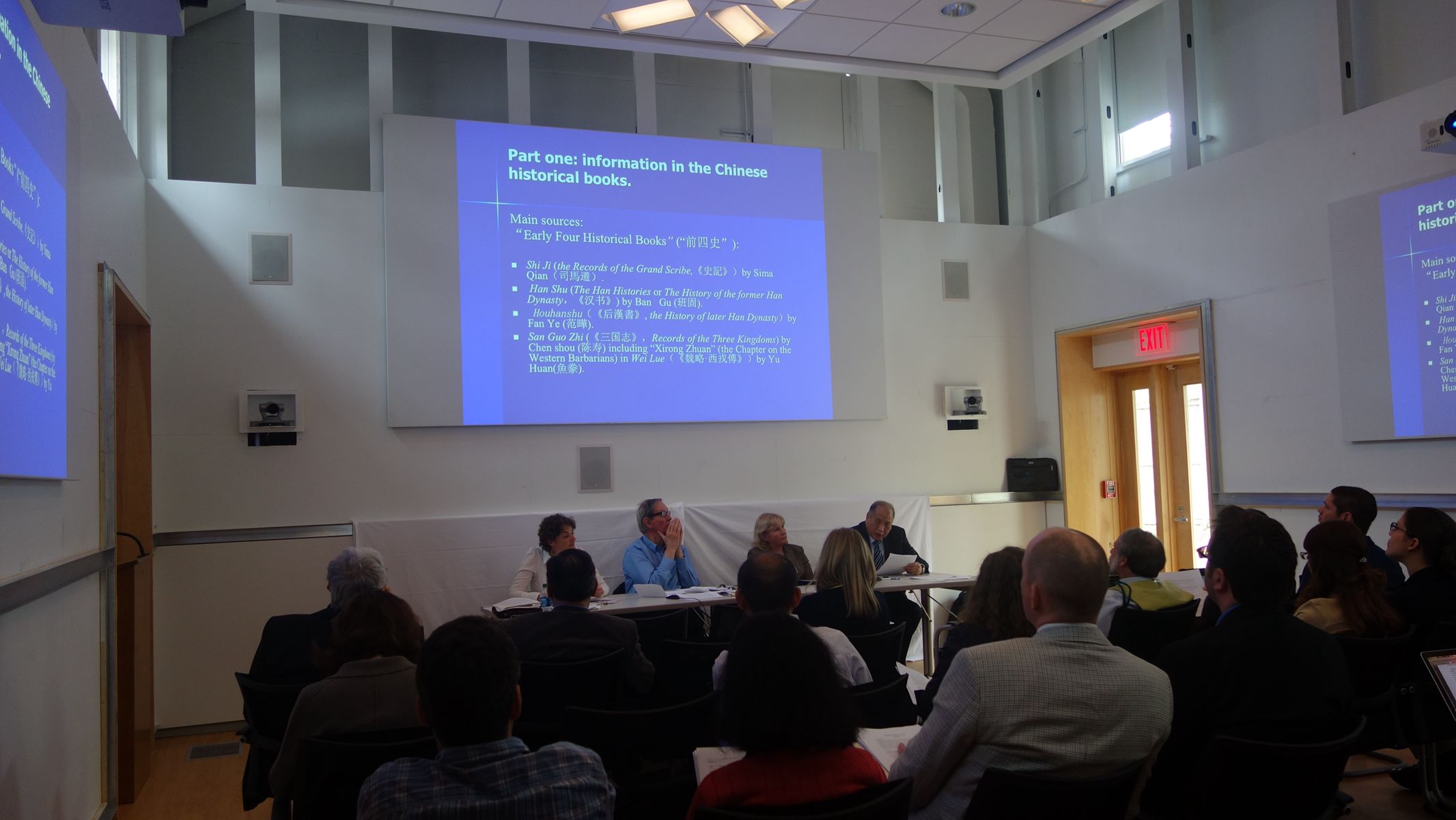
This major program was granted by the National Social Science Foundation of China in 2015 ( No. 15ZDB059), and is hosted by the chief expert, Professor Yang Juping of the History Department at Nankai University.
The Hellenistic Civilization was based on the Empire of Alexander and was a new civilization which appeared in Eurasia as a result of the contact, exchange and fusion between Hellenic civilizations and those of Egypt, Babylonia and India. The Silk Road opened by the great envoy Zhang Qian from Han China, was a main artery linking the ancient civilizations in the east and west. Their meeting in Central Asia, Western Asia and India is one of the significant events in the history of human civilization. It is through the Silk Road that the direct contacts began and developed between the Chinese and western cultures represented by the Hellenistic Civilization, and that the legacy and information of the Hellenistic Civilization were brought into China, and finally were integrated unconsciously into the tradition of Chinese Culture. Therefore, the interaction between Chinese and Hellenistic Civilizations is the key point concerned with by this program.
The main subjects of this program is as following:
1. The background of the establishment of relation between the Hellenistic World and the Silk Road. How the Empire of Alexander plaid the important role in the emergence of the Silk Road from China to the Mediterranean will be answered.
2. The Hellenistic cities and the trade centers and metropolises along the Silk Road. The continuation and rebuilding of these cities and towns, especially their roles as cultural and commercial centers on the Silk Road will be focused on.
3. The Hellenistic coins and those circulating on the Silk Road later. The evolution of the Hellenistic coins and their imitation and transformation by the rulers of those kingdoms along the Silk Road will be paid more attention. These various coins were not only the currencies for exchange of commodities, but also the medias for the fusion and spread of the multi-cultures carried with them.
4. The Hellenistic art and the religious art on the Silk Road. The historical context of the birth and development of Gandhara Art in India and its features as well as its spread and evolution in central Asia and China, will be searched .
5. The Hellenistic legacy in China. The historical literature and relics in China related to the Hellenistic Civilization will be surveyed and analyzed completely and seriously.
This program refers to many research fields such as history, literature, archaeology, numismatics, site of ancient city, art, religion, and a vast scope including the eastern Mediterranean, Western , Central Asia, South Asian and China, as well as a long time span from the conquest of Alexander the great in 334BC to the rise of the Arabian Empire in the seventh century. So the members of our team include not only historians but also archaeologists, numismatists and the other experts concerned. Most of them come from the history department of Nankai University and other universities and academies in China, and some foreign experts also are our important partners. However, we are still looking forward to establishing more cooperation with other scholars.
All the research result will be published in a multivolume series titled Hellenistic and The Silk Road in Chinese. One abridged English version of it is also in the plan.
Welcome to join our research. Please contact professor Yang Juping: yjuping@nankai.edu.cn; yjuping@hotamil.com